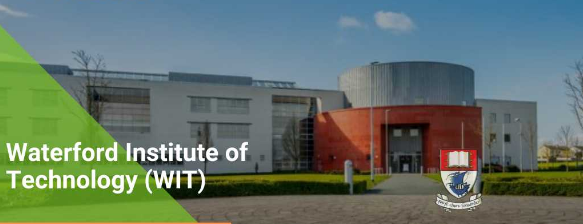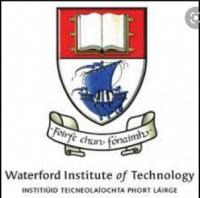Bachelor of Engineering (Honours) Electrical Engineering
What is Electrical Engineering?
Electrical Engineering is the study of Electricity, its generation and distribution, Electronics and Electromagnetism. The electrical engineer supplies us with the ability to harness electricity which has transformed our lives. It gives us light, heat, communication systems and comfort. Electrical engineers create and design products and information systems using scientific principles combined with problem-solving and innovation.
What is the BEng (Hons) in Electrical Engineering?
The BEng (Hons) in Electrical Engineering is a full-time, four year, honours degree course of study that can be chosen within the Engineering Common Entry Route. The primary aim of the programme is to produce graduates of high calibre who possess a thorough knowledge of scientific principles and engineering practice and an appreciation of the work and business environment in which the professional engineer must work. WIT aims to create an open, stimulating environment for students and aims to provide access to an appropriate range of facilities and equipment.
The programme core content has a strong emphasis on nurturing an ability to foster analytical thinking and reasoning. A 6-month industrial placement helps give the student a context for some of the material already learnt and will provide a stimulus in the final year of learning.
Five module groups forming a pathway (across the years) can be identified in the programme:
- Control Engineering modules form a group of modules across the programme to provide a specialist area. This group includes Analog Control, Digital control and Robotics and Vision. These modules are also heavily supported by the programming modules HLL programming and Software applications and Algorithms
- Electrical Systems: the area of Electrical power and distribution is covered in Electrical Power Systems, Electrical Power Systems project, Renewable Energies, Project Specification and Project Implementation.
- Mathematics module group that run across the programme. Although mathematics in year 4 is not represented explicitly, it is prominent and applied in modules such as Electrical Signal and Systems and the control modules.
- Industrial Studies and Personal Development module group: Industrial Placement, Semiconductor Technology, Industrial Standards and Legislation, and Operations management
- Telecommunications / communications Module group: Telecommunications, Data Communications
Campus Information
Cork Road
Intakes
- Jan
- July
- Sep
Application Processing Time in Days: 10
Minimum English Language Requirements
| English Level Description | IELTS (1.0 -9.0) | TOEFL IBT (0-120) | TOEFL CBT (0-300) | PTE (10-90) | |
|---|---|---|---|---|---|
| Expert | 9 | 120 | 297-300 | 86-90 | |
| Very Good | 8.5 | 115-119 | 280-293 | 83-86 | |
| Very Good | 8 | 110-114 | 270-280 | 79-83 | |
| Good | 7.5 | 102-109 | 253-267 | 73-79 | |
| Good | 7 | 94-101 | 240-253 | 65-73 | |
| Competent | 6.5 | 79-93 | 213-233 | 58-65 | |
| Competent | 6 | 60-78 | 170-210 | 50-58 | |
| Modest | 5.5 | 46-59 | 133-210 | 43-50 | |
| Modest | 5 | 35-45 | 107-133 | 36-43 | |
| Limited | 4 | 32-34 | 97-103 | 30-36 | |
| Extremely Limited | < 4 | < 31 | < 93 | < 30 |
Job Opportunity Potential
WIT’s award-winning Careers Development Centre is the main point of contact for:
- Students and graduates, helping you explore your options, develop your employability skills and make successful job applications
- Academic Staff, supporting you to equip your students with the skills they need to enhance their employability and succeed in their future careers
- Employers interested in securing the recruitment of well educated, career orientated, informed graduates
The Careers Development Centre supports the Institute in providing opportunities for students and graduates to develop the skills and attributes required to manage their careers throughout their working lives.
PSW Opportunity
2 Years
Admission Requirement / Eligibility Criteria
- You should be at least 17 years of age in January of the year of entry.
- You must have a Secondary/High School Diploma, with good grades in English and Mathematics and at least 4 other subjects, on average + 60%.
- Some courses have special entry requirements, which you should check under the course details.
Minimum Standard for Undergraduate entry
Examining Body/Framework
Minimum standard
IELTS
5.5 IELTS
(minimum of 5 IELTS in each component)
TOEFL – Computer Based Test
196 (min score of 15 in each component)
TOEFL – Internet Based Test
70 (min score of 15 in each component)
TOEFL – Paper Based Test
550
GCE O-Level English Language
Grade C
GCSE English
Grade C
TIE
B2+
TOEIC
605
Trinity College London
Trinity GESE 8 or ISE II
Cambridge Exams
FCE (High Grade C)
Cambridge Certificate in Advanced English
Grade C
South East Technological University (Certificate in English for Academic Study or the Certificate in Academic English)
Overall Pass
CEFR
B2
ETAPP
B2+
PTE (Academic)
50
QQI FET
Pass
Duolingo English Test
90
Oxford Test of English
111 (with a minimum of 100 in each component)
Irish Leaving Certificate
Ordinary Level O6
Language Cert
B2 Communicator (with a minimum average of 25)
- Course Code: SE700
- Course Type: Full Time
- Course Level: Bachelors/UG Degree
- Duration: 04 Year
-
Total Tuition Fee:
41000 EUR
Average Cost of Living: 10500 EUR /year
Application Fee: 50 EUR
Similar Programs
- Bachelor of Science (Honours) Information Technology Management at Waterford Institute of Technology
- Bachelor of Science (Honours) Land Management in Agriculture at Waterford Institute of Technology
- Bachelor of Engineering (Honours) Engineering (Common Entry) at Waterford Institute of Technology
- Bachelor of Science Architectural & Building Information Modelling Technology at Waterford Institute of Technology
- Bachelor of Architecture (Honours) Architecture at Waterford Institute of Technology
- Bachelor of Science (Honours) Quantity Surveying at Waterford Institute of Technology

